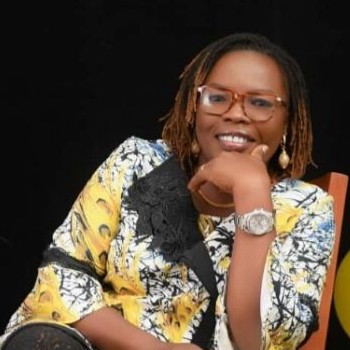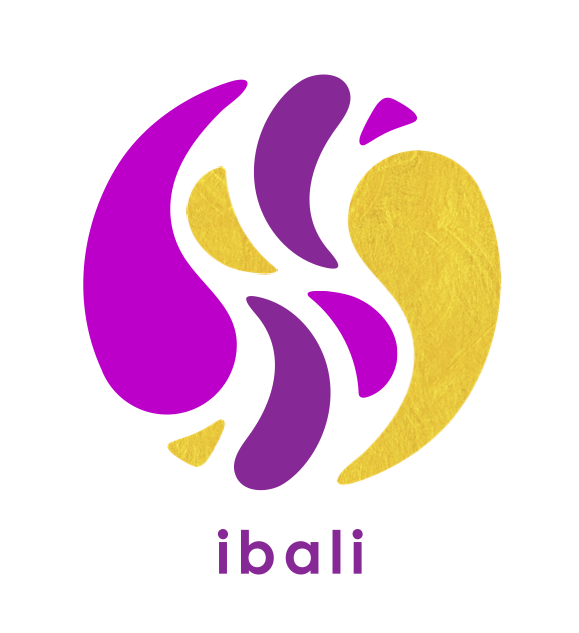You are here
- Home
- Research
- Networks
- Ibali
- Blogs
- Storytelling Inside and Outside the Classroom – Reflections by Margaret Ismaila
Storytelling Inside and Outside the Classroom – Reflections by Margaret Ismaila
4 August 2023

Portrait photo of Margaret Ismaila
Using storytelling
Storytelling has been a doorway to information, education, social development and moral ethics in my practice. I use storytelling as a means of engaging, entertaining and captivating my target audiences. Over the years it has been an effective approach in engaging with students in my lectures. Outside the classroom, it is useful during community outreach programmes and engaging with communities. Within the African context, where I work, I can delve into much more than just the narrative aspects of the craft, but also to tap into the unique aesthetics of African art.
Locating storytelling in my teaching
Reflecting on indigenous African histories, stories were told under the tree shade, usually to children who were gathered around actively listening to the storyteller. In Ghana, where the Akans are the majority, Anansesԑm (the term used to describe stories or spider tales) is usually narrated to listeners to teach them life’s lessons through the experiences of the cunning spider called Kwaku Ananse. The narrator keeps the audience engaged by involving them in the storytelling process. They do so by introducing mboguo, a musical and dance interlude which requires the audience to sing along to music and dance to rhythms. The singing and dancing are connected to the story in ways that do not distract the participants from the plot, but rather help them understand it even better. Borrowing from this African style of storytelling, I can use more than just the narrative aspect of storytelling to engage learners and connect to audiences in ways that effectively convey the messages or lessons of the story, which supports my teaching in the classroom and my work in the community.
Why storytelling matters in my work
As a lecturer of Theatre History of Europe and Africa, Drama in African Societies, African Plays and Playwrights, and Drama in Education at the University of Ghana, I am constantly using and referring to storytelling in almost, if not every, area of my work. Students and I, through discussions and reading of relevant texts, reminisce about the development of theatre in Europe and in Africa. We get immersed in understanding of how drama in our indigenous African societies developed into modern conventional theatre. Students also watch theatre productions staged at the department to get more perspectives of the plays being performed and improve their own analytical abilities so that in the long run they can make the most out of every story. For instance, to make them understand how in African societies, funeral rites are public or communal events and not usually private, I sometimes share stories of funeral rites held in my hometown, and recount significant events within these rites that would not possibly occur if the funerals were held in private. An example is the singing of praise songs by a praise singer to recount the good deeds of the deceased and his impact on members and segments of the community, and the shaming of the deceased through songs of their misconduct and the dent their inappropriate behavior during their lifetime has left on their families and the community. This music ritual is important to the Dagaaba, (an ethnic group found in the northern part of Ghana and the southern part of Burkina Faso) because it reminds the living that when they die, their deeds live on and thus it is important to live an exemplary life and do good deeds. By the time I am through with such a story, my students understand that private funerals would eliminate the effectiveness of such a valuable tradition that has served the people for generations. Such stories also spark debate and conversation in the class, making it more inclusive.
Creating inclusive classroom spaces using storytelling
In my experience as a lecturer, I have observed students contribute to discussions that they relate to, especially informally. Some students understand what I teach and engage in every step, and others not so much - they hold back their opinions, questions or contributions to avoid embarrassment. But when storytelling is used, the atmosphere changes drastically – everybody engages! The stories I tell in relation to the subject matter are usually the triggers of reactions; disagreements and agreements, alternative perspectives, new and sometimes similar insights. The inclusiveness that storytelling brings in the classroom cannot be swept under the rug. I encourage student-led presentations in my classes, where students bring their own narrative perspective through their own research on any given topic.
Beyond the classroom
In my current work with communities, I apply various aesthetics of African storytelling that I described earlier such as mboguo. Using mboguo with communities helps build a sense of camaraderie with the members of the community. In July 2021, I facilitated a collaborative research project by The University of York and The University of Ghana. The project, Participatory Theatre and The Mitigation of Social and Environmental Harm: A Case Study from Artisanal and Small-Scale Gold Mining in Ghana was undertaken with community members in a prospective mining area called Akyem Asunafo. The objective of the project was to tackle some of the environmental challenges caused by small-scale gold mining. Using focus group discussions, woven into indigenous storytelling of musical interludes (mboguo) kept everyone engaged and involved in the discussions. Everyone who spoke had a story to tell from their own personal experiences with the issue at hand. The conversation was vibrant and engaging and offered so many relevant views that enabled us to have a thorough understanding of the severity of the potential harm that the larger community was trying so hard to avoid. We also used theatre performance to identify their needs, and in the process, the community told a creative story of their struggles with small-scale gold mining
The play was an enactment of the story of the people of Akyem-Asunafo, a community in the Atiwa West District in the Eastern Region of Ghana. This enactment had to be staged outside of the community for security reasons and also because its intended immediate audience was the National Commission for Civic Education (NCCE). The performance tells the story of how the majority of the Akyem-Asunafo community frown upon the idea of small-scale mining in the area, thanks to them witnessing its devastating effects on their neighboring communities. It is a compelling story that highlights why it is important for stakeholders in mining to understand and respect the position of the community; one that holds its members accountable to ethical values that seek to prevent such mining activities from destroying their environment. As the facilitator of this project, I made a statement that the goal of the performance was to display “…the dramatization of the challenges associated with illegal mining, to enhance public education and encourage social transformation”. This statement emphasizes my conviction in the power and relevance of storytelling in education and social reform.
Areas to explore
One area of storytelling which I find very effective and would like to explore is film. I view film to be one of the most influential tools for sensitizing and educating communities on social issues and other subject matters. Widely consumed by the masses, it has the potential to spur positive social change. Given my knowledge of African culture and history, my experience in community outreach and my understanding of the mechanisms and power of the art of storytelling, I believe I can creatively contribute to the development of film content. I am also able to garner other perspectives and relevant insight for the development of quality and transformative content, which might be useful in film.
Ideas for Early-Career Researchers
I recommend that interested early-career researchers explore the potential of film in driving social reformation agendas and the means by which the social issues that plague African communities can find more prominence in the film sector. I believe that such endeavors will open the gates to a lot of improvements in African societies.
About the Author
Margaret Ismaila is a faculty member in the Department of Theatre Arts, University of Ghana. Her area of research revolves around Indigenous Performance and Communities’ Participation in Preservation, Historiography of Embodied Knowledge and Functionality of Traditional Institutions. She was part of the Ibali Network storytelling workshop with early-career Sub-Saharan African Scholars held in Cape Town in 2018.
.jpg)
